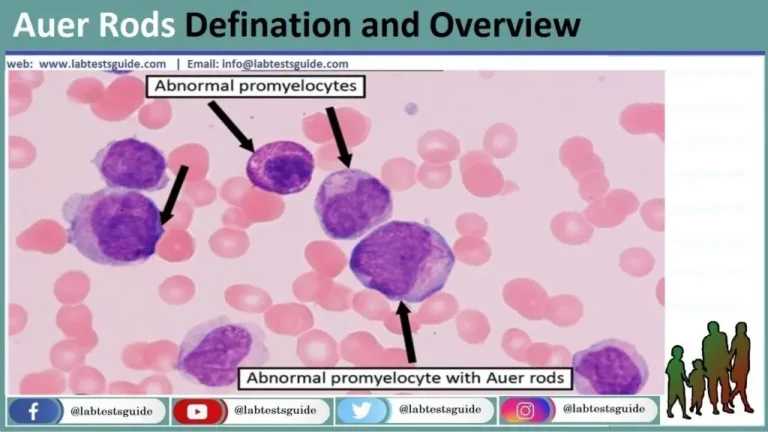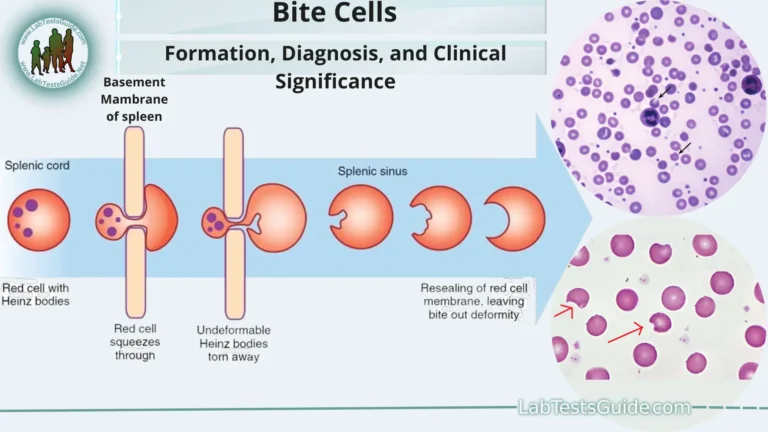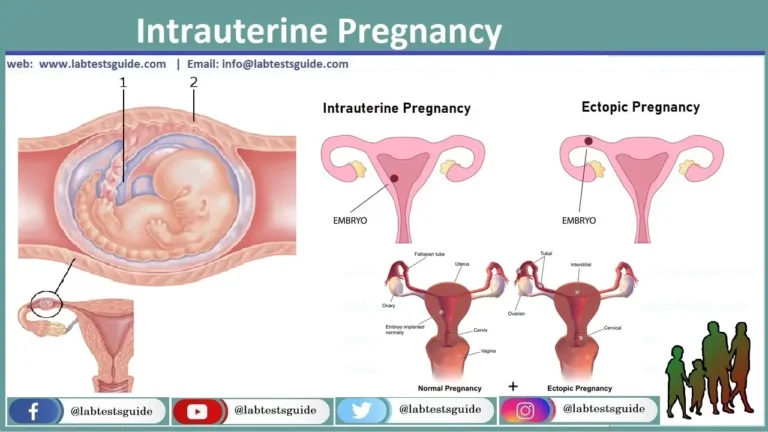Afibrinogenemia is a rare inherited bleeding disorder characterized by a deficiency or absence of fibrinogen in the blood. Fibrinogen is a protein that plays a crucial role in the blood clotting process, specifically in the formation of blood clots.
Definition of Afibrinogenemia.
Afibrinogenemia is a rare and congenital (present from birth) bleeding disorder characterized by a complete absence or severe deficiency of fibrinogen in the blood. Fibrinogen is a critical protein involved in the blood clotting cascade, specifically in the final stages of clot formation. It plays a crucial role in the conversion of soluble fibrinogen into insoluble strands of fibrin, which helps to stabilize blood clots and prevent excessive bleeding.
In individuals with afibrinogenemia, the absence or extremely low levels of fibrinogen result in a significant impairment of the blood’s ability to form effective clots. As a result, people with this condition are at a heightened risk of experiencing spontaneous bleeding episodes and can bleed excessively even after minor injuries or surgical procedures. Common symptoms may include nosebleeds, easy bruising, bleeding gums, and, in severe cases, internal bleeding.
Causes and Genetics:
- Genetic Basis: Afibrinogenemia is primarily caused by genetic mutations that affect the genes responsible for the production of fibrinogen. The genes involved in encoding fibrinogen are FGA, FGB, and FGG, and mutations in these genes can lead to afibrinogenemia.
- Autosomal Recessive Inheritance: Afibrinogenemia is typically inherited in an autosomal recessive pattern. This means that for an individual to have afibrinogenemia, they must inherit two copies of the mutated gene, one from each parent. If both parents are carriers (heterozygous), there is a 25% chance with each pregnancy of having an affected child, a 50% chance of having a carrier (who doesn’t have the condition but can pass on the mutated gene), and a 25% chance of having an unaffected child.
- Genetic Testing: Diagnosis of afibrinogenemia often involves genetic testing to identify specific mutations in the FGA, FGB, or FGG genes. This helps confirm the genetic basis of the condition and provides information about the specific mutations present.
- Spontaneous Mutations: In some cases, afibrinogenemia can result from spontaneous mutations that occur during early development rather than being inherited from parents. These de novo mutations can lead to the absence or dysfunction of fibrinogen.
- Variability in Severity: The severity of afibrinogenemia can vary among affected individuals depending on the specific genetic mutations they carry. Some individuals may have extremely low levels of fibrinogen, while others may have a complete absence of the protein.
- Genetic Counseling: Genetic counseling is an essential component of managing afibrinogenemia. It helps affected individuals and their families understand the genetic basis of the condition, assess the risk of passing it on to future generations, and make informed decisions about family planning.
Symptoms and Diagnosis:
Symptoms:
This excessive bleeding can manifest in various ways.
- Spontaneous nosebleeds.
- Prolonged and heavy menstrual bleeding in females.
- Easy bruising.
- Bleeding gums, particularly during dental procedures or while brushing teeth.
- Gastrointestinal bleeding, leading to bloody stools.
- Joint bleeding, which can cause joint pain and swelling.
- Internal Bleeding: In severe cases, afibrinogenemia can lead to internal bleeding, which may not be immediately apparent but can be life-threatening. Symptoms of internal bleeding can include abdominal pain, swelling, and a drop in blood pressure.
- Prolonged Bleeding After Surgery: Individuals with afibrinogenemia are at high risk for prolonged bleeding after surgical procedures, even minor ones. This necessitates careful planning and close monitoring by medical professionals.
- Intracranial Hemorrhage: Although rare, severe bleeding into the brain (intracranial hemorrhage) can occur in individuals with afibrinogenemia and may result in neurological symptoms such as severe headaches, altered consciousness, or seizures.
Diagnosis:
- Clinical Evaluation: A diagnosis of afibrinogenemia begins with a thorough clinical evaluation by a healthcare provider. This includes a review of the patient’s medical history, family history, and a physical examination to assess for signs of bleeding or bruising.
- Coagulation Tests: Laboratory tests are essential for diagnosing afibrinogenemia. Coagulation tests may reveal prolonged clotting times, indicating a potential clotting factor deficiency.
- Fibrinogen Assay: This test measures the level of fibrinogen in the blood. In afibrinogenemia, fibrinogen levels are extremely low or undetectable.
- Prothrombin Time (PT): PT measures the time it takes for blood to clot. Prolonged PT can be indicative of a clotting factor deficiency.
- Activated Partial Thromboplastin Time (aPTT): A prolonged aPTT can also suggest a clotting factor deficiency.
- Genetic Testing: Genetic testing is essential to confirm the diagnosis of afibrinogenemia and identify the specific genetic mutations responsible. DNA analysis can help determine whether the condition is inherited and which genes are affected.
- Other Assessments: Additional assessments, such as bleeding time tests and platelet function tests, may be performed to evaluate overall bleeding risk and rule out other bleeding disorders.
- Family History: Gathering a detailed family history is crucial, as afibrinogenemia is often inherited. Identifying affected family members can provide important clues for diagnosis and genetic counseling.
Treatment Options:
- Fibrinogen Replacement Therapy: The primary treatment for afibrinogenemia is the replacement of fibrinogen in the blood to restore its ability to clot properly. Fibrinogen replacement therapy typically involves administering fibrinogen concentrates or cryoprecipitate, which are rich in fibrinogen.
- Cryoprecipitate: Cryoprecipitate is a blood product that contains high concentrations of fibrinogen, along with other clotting factors such as fibrin-stabilizing factor (Factor XIII), and von Willebrand factor. It is administered intravenously to raise fibrinogen levels rapidly during bleeding episodes or before surgeries.
- Fibrinogen Concentrates: Fibrinogen concentrates are purified forms of fibrinogen derived from donated human plasma. They are available in various formulations and can be administered intravenously to increase fibrinogen levels. Fibrinogen concentrates are a more concentrated and convenient option compared to cryoprecipitate.
- Prophylactic Therapy: In some cases, individuals with afibrinogenemia may receive prophylactic (preventive) treatment with fibrinogen replacement therapy to maintain adequate fibrinogen levels and prevent spontaneous bleeding episodes. The frequency and dosage of prophylactic therapy are determined based on individual needs and bleeding risk.
- Surgery Planning: Prior to surgeries or invasive procedures, individuals with afibrinogenemia should receive fibrinogen replacement therapy to ensure proper blood clotting during and after the procedure. The dosage and timing of therapy are determined by the treating healthcare team.
- Management of Bleeding Episodes: In addition to routine replacement therapy, on-demand treatment with fibrinogen concentrates or cryoprecipitate may be necessary to manage spontaneous bleeding episodes or injuries. The specific treatment approach will depend on the severity of the bleeding episode.
- Factor XIII Replacement: In some cases, individuals with afibrinogenemia may also have a deficiency of Factor XIII, which plays a role in stabilizing fibrin clots. In such cases, Factor XIII replacement therapy may be considered in addition to fibrinogen replacement.
- Regular Monitoring: Close monitoring of fibrinogen levels and overall clotting function is essential to adjust treatment plans as needed. Regular follow-up with a hematologist or bleeding disorder specialist is crucial to ensure optimal care.
- Emergency Preparedness: Individuals with afibrinogenemia and their caregivers should be educated on recognizing signs of bleeding and how to administer replacement therapy in emergency situations. This may involve training in self-infusion or having access to emergency medical care.
Management and Living with Afibrinogenemia:
Here are some key aspects of managing this rare bleeding disorder.
- Regular Medical Follow-Up: Individuals with afibrinogenemia should have regular check-ups with a hematologist or a bleeding disorder specialist. These healthcare professionals can monitor fibrinogen levels, adjust treatment plans as needed, and provide guidance on managing the condition effectively.
- Fibrinogen Replacement Therapy: Adhere to the prescribed fibrinogen replacement therapy regimen. This may involve routine prophylactic therapy to maintain fibrinogen levels and on-demand treatment for bleeding episodes. Follow your healthcare provider’s recommendations for dosages, timing, and administration methods.
- Emergency Preparedness: Be prepared for unexpected bleeding episodes. Learn how to self-administer fibrinogen replacement therapy if possible, and have an emergency plan in place. This may include carrying a medical alert card or bracelet to inform healthcare providers about your condition.
- Bleeding Episode Management: If a bleeding episode occurs, promptly seek medical attention and administer fibrinogen replacement therapy as directed by your healthcare team. It’s essential to address bleeding episodes quickly to prevent complications.
- Avoidance of High-Risk Activities: Engage in activities with caution, especially those that pose a high risk of injury or bleeding, such as contact sports or activities with a high risk of trauma. Consult with your healthcare provider about which activities are safe for you.
- Dental Care: Inform your dentist about your condition and receive appropriate dental care. Dental procedures can trigger bleeding, so preventive measures and fibrinogen therapy may be necessary.
- Menstrual Management: If you’re a female with afibrinogenemia, discuss menstrual management options with your healthcare provider. Heavy menstrual bleeding can be managed with medications or procedures to reduce the risk of excessive bleeding.
- Genetic Counseling: If you are considering starting a family, genetic counseling is essential to understand the risk of passing afibrinogenemia to your children. A genetic counselor can provide information about family planning options.
- Medication Management: Be cautious with medications that affect blood clotting. Consult your healthcare provider before taking any new medications, including over-the-counter drugs and supplements.
- Healthy Lifestyle: Maintain a healthy lifestyle with a balanced diet, regular exercise, and stress management. Staying physically active can help improve overall cardiovascular health, which is important for individuals with bleeding disorders.
- Support Groups: Consider joining a support group or connecting with others who have bleeding disorders. Sharing experiences and coping strategies can provide valuable emotional support.
- Education: Continuously educate yourself and your family about afibrinogenemia, its management, and the latest treatment options. Knowledge empowers you to make informed decisions and advocate for your healthcare needs.
Complications and Risks:
- Excessive Bleeding: The primary risk and complication of afibrinogenemia is the propensity for excessive bleeding. This can occur spontaneously or following minor injuries, surgeries, or dental procedures. Uncontrolled bleeding can lead to various complications, including:
- Hemorrhage: Severe or prolonged bleeding episodes can result in hemorrhage, which can be life-threatening if not promptly treated. Hemorrhage can occur internally (e.g., in the digestive tract, joints, or brain) or externally (e.g., from the nose, mouth, or skin).
- Joint Bleeding (Hemarthrosis): Repeated joint bleeding, known as hemarthrosis, can lead to joint damage, chronic pain, and impaired joint function. This complication is particularly relevant in individuals with afibrinogenemia who experience joint bleeding.
- Intracranial Hemorrhage: Although rare, afibrinogenemia can lead to intracranial hemorrhage (bleeding in the brain), which can result in neurological symptoms, seizures, and even life-threatening consequences.
- Anemia: Recurrent bleeding episodes can lead to anemia (a deficiency of red blood cells), which can cause fatigue, weakness, and pallor.
- Delayed Healing: Prolonged bleeding can impair wound healing, leading to delayed recovery following surgeries or injuries.
- Psychological Impact: Living with a rare bleeding disorder like afibrinogenemia can be emotionally challenging. Coping with the fear of bleeding episodes, the need for frequent medical interventions, and potential lifestyle restrictions can lead to emotional stress and anxiety.
- Dental Complications: Dental procedures can trigger bleeding episodes, and untreated dental issues may worsen. Proper dental care is crucial to prevent complications in the oral cavity.
- Reproductive Challenges: Female individuals with afibrinogenemia may experience heavy menstrual bleeding, which can lead to anemia and negatively impact their quality of life. Managing menstrual bleeding may require medical intervention.
- Surgical Challenges: Surgery and invasive medical procedures in individuals with afibrinogenemia require careful planning and coordination with healthcare providers to minimize bleeding risk.
- Pregnancy and Childbirth: Pregnancy management in individuals with afibrinogenemia requires special attention to minimize bleeding risk during childbirth. Consultation with a hematologist and obstetrician is essential to develop a safe delivery plan.
- Joint and Bone Health: Repeated joint bleeding episodes can lead to joint damage and, over time, may contribute to long-term joint problems.
- Anxiety and Depression: Coping with the challenges of afibrinogenemia can lead to emotional stress, anxiety, and depression. Psychosocial support and counseling can be beneficial.
Genetic Counseling:
What Is Genetic Counseling?
- Genetic counseling is a specialized medical service that provides information, support, and guidance to individuals and families who may be at risk of or affected by a genetic disorder. Genetic counselors are healthcare professionals trained in genetics and counseling. They work with patients to help them understand the genetic basis of their condition, its inheritance pattern, and the potential implications for their health and family planning.
Role of Genetic Counseling in Afibrinogenemia:
- Confirming Diagnosis: Genetic counseling often starts with confirming the diagnosis of afibrinogenemia through genetic testing. The counselor helps interpret the genetic test results and explains how specific genetic mutations contribute to the condition.
- Inheritance Patterns: Genetic counselors educate individuals and families about the inheritance pattern of afibrinogenemia, which is typically autosomal recessive. They explain that both parents must carry a mutated gene for their child to inherit the condition and discuss the risk of recurrence in future pregnancies.
- Family Planning: Genetic counselors provide guidance on family planning options for affected individuals and couples who are carriers. They discuss various reproductive options, including prenatal testing, pre-implantation genetic diagnosis (PGD), and adoption, allowing individuals and couples to make informed decisions about expanding their families.
- Prenatal Testing: For pregnant individuals with afibrinogenemia or those at risk of carrying the condition, genetic counselors discuss the possibility of prenatal testing, such as chorionic villus sampling (CVS) or amniocentesis, to determine if the fetus has inherited the condition.
- Newborn Screening: In some cases, genetic counselors may discuss newborn screening for afibrinogenemia if a family has a known history of the condition. Early diagnosis through newborn screening can help initiate appropriate treatment promptly.
- Support and Resources: Genetic counselors provide emotional support and connect individuals and families with resources and support groups for those affected by afibrinogenemia. This helps individuals cope with the challenges of living with a rare genetic disorder.
- Educational Resources: Genetic counselors offer educational materials and resources to help individuals better understand afibrinogenemia, its management, and available treatments.
Benefits of Genetic Counseling:
- Informed Decision-Making: Genetic counseling empowers individuals and couples to make informed decisions about family planning and reproductive options.
- Emotional Support: Dealing with a genetic condition can be emotionally challenging. Genetic counselors offer emotional support and a safe space to discuss concerns and feelings.
- Optimized Care: Understanding the genetic basis of afibrinogenemia helps individuals and their healthcare providers tailor treatment plans and preventive measures more effectively.
- Family Understanding: Genetic counseling can help family members better understand the condition and its implications, fostering a supportive environment.
FAQs:
What is afibrinogenemia?
Afibrinogenemia is a rare genetic bleeding disorder characterized by a complete absence or severe deficiency of fibrinogen, a critical protein involved in blood clotting.
What are the symptoms of afibrinogenemia?
Symptoms include spontaneous bleeding episodes, such as nosebleeds and easy bruising, as well as excessive bleeding after minor injuries or surgeries. In severe cases, internal bleeding can occur.
How is afibrinogenemia diagnosed?
Diagnosis involves clinical evaluation, coagulation tests (e.g., fibrinogen assay, prothrombin time, activated partial thromboplastin time), genetic testing, and a review of family history.
Is afibrinogenemia inherited?
Yes, afibrinogenemia is typically inherited in an autosomal recessive manner, meaning that both parents must carry a mutated gene for their child to inherit the condition.
What is the treatment for afibrinogenemia?
The primary treatment is fibrinogen replacement therapy, which involves administering fibrinogen concentrates or cryoprecipitate to restore clotting ability. Prophylactic and on-demand therapy is used to prevent and manage bleeding episodes.
Can afibrinogenemia be cured?
Afibrinogenemia is a lifelong condition, and there is no cure. Treatment focuses on managing the condition and preventing bleeding episodes.
How can I prevent bleeding episodes with afibrinogenemia?
Preventive measures include regular fibrinogen replacement therapy, avoiding high-risk activities, and undergoing prophylactic treatment before surgeries or dental procedures.
Is genetic counseling necessary for afibrinogenemia?
Yes, genetic counseling is essential for individuals with afibrinogenemia and their families. It provides information on inheritance, family planning, and the risk of passing the condition to offspring.
Are there support groups for afibrinogenemia?
Yes, there are support groups and patient organizations that provide resources, information, and a community of individuals and families affected by afibrinogenemia.
What is the outlook for individuals with afibrinogenemia?
With proper management and treatment, individuals with afibrinogenemia can lead fulfilling lives. Early diagnosis and adherence to treatment recommendations are key to improving outcomes.
Conclusion:
In conclusion, afibrinogenemia is a rare and inherited bleeding disorder characterized by the absence or severe deficiency of fibrinogen, a crucial clotting protein. While it presents challenges in terms of bleeding episodes and complications, advances in genetic testing, treatment options, and genetic counseling have improved the diagnosis and management of this condition. With proper medical care, close monitoring, and a supportive healthcare team, individuals with afibrinogenemia can lead fulfilling lives while minimizing the risks associated with bleeding episodes and complications.
Possible References Used






